Meghalaya IAS Officer is Ensuring No Daily Wager, Migrant Worker Goes Hungry in His District
"Neither do they have proper work, nor the resources to survive a lockdown," says IAS officer Swapnil Tembe. Join The Better India and civil servants like Swapnil Tembe in helping the hardest-hit section of the society.
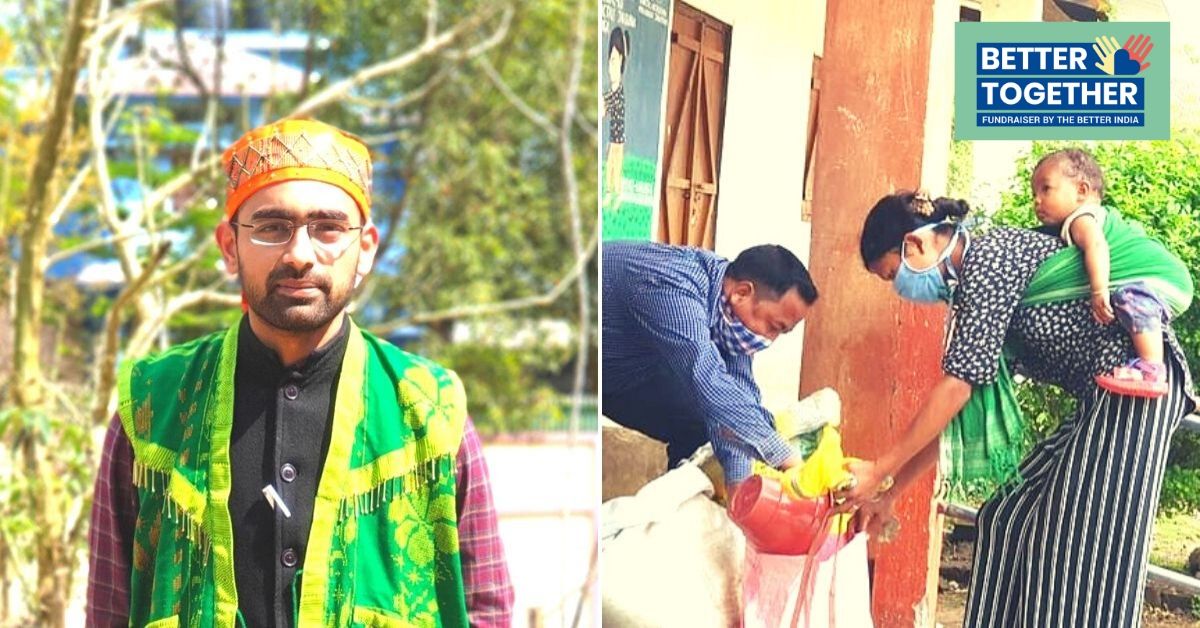
(The Better India’s “BETTER TOGETHER” initiative has brought together civil service officers from across the country as they help migrant labourers, daily wage earners, frontline workers, and all those who need our help most in these troubled times. One officer is Deputy Commissioner of East Garo Hills district in Meghalaya, Swapnil Tembe, who has taken significant measures to help.)
On 15 April 2020, Meghalaya reported its first COVID-19 related death. Thus far, six people who came into contact with the deceased in Shillong have tested positive for the virus. This has evidently raised alarm bells in other districts across the state.
Of the 68 tested so far, 6 have come out positive who are all family members & helpers of the first #Covid19 positive case.
6 other cases are being retested.
All the rest of the cases are negative.
— Conrad Sangma (@SangmaConrad) April 15, 2020
Speaking to The Better India (TBI), Swapnil Tembe, the Deputy Commissioner of East Garo Hills, said that he has promulgated a total curfew in his district.
“Everything is closed for two days. We are, meanwhile, conducting extensive contact tracing and following up on all necessary protocols. Thus far, around 200 people have arrived into the district from affected states, and none from abroad. They were kept under home quarantine, but their samples have tested negative. As of now, the district doesn’t have anyone with any suspicious travel history. In a day or two, grocery shops will reopen, but public and private transport will remain shut,” says Tembe.
The Better India’s “BETTER TOGETHER” initiative has brought together civil service officers from across the country as they help migrant labourers, daily wage earners, frontline workers, and all those who need our help most in these troubled times. You can join us and support them in this fight against COVID-19.
Unable to view the above button? Click here
Also, the State government, as per instructions from the Government of India, will continue to allow MGNREGS work and farming activities to continue with of course all necessary precautions.
Under the Pradhan Mantri Garib Kalyan Yojana, below poverty line (BPL) card owners will receive 5kg of rice and 1 kg of pulses for free in the months of April, May and June. This takes care of the needs of nearly 90 per cent of the district, which resides in rural areas.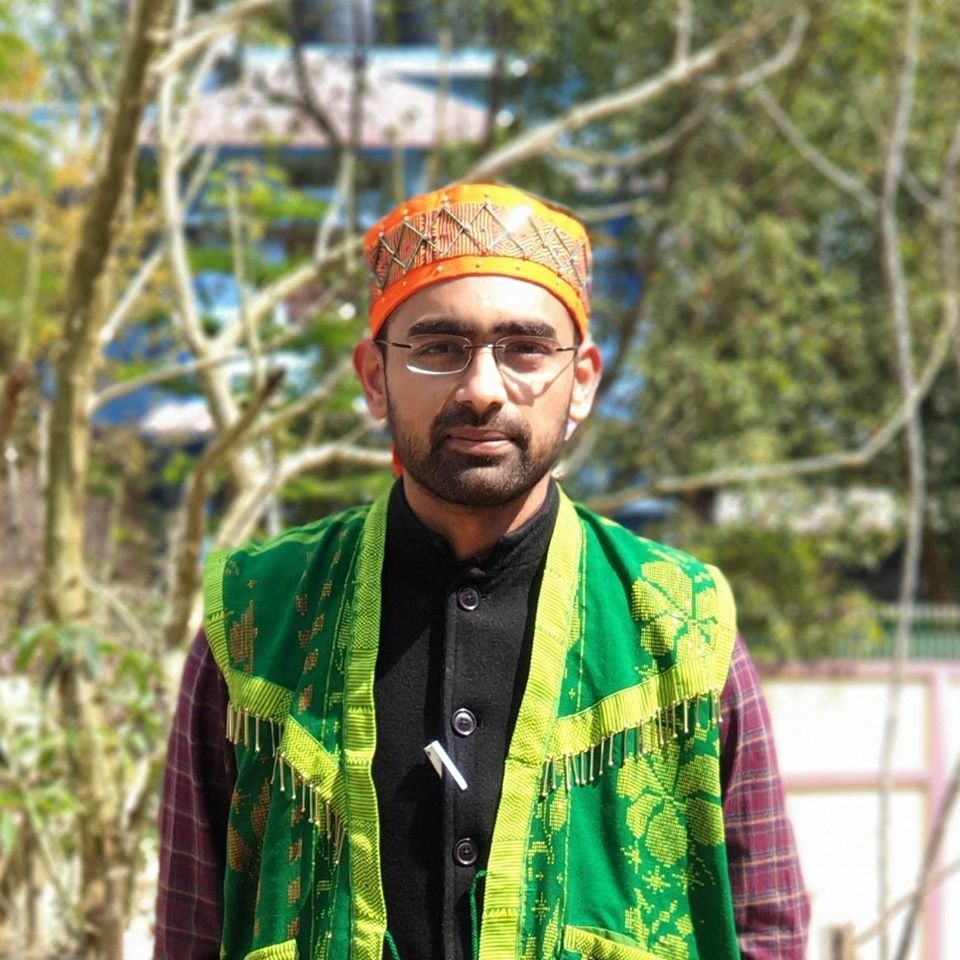
Taking Care of the Migrant Population
Concerns in the state remain around urban daily wagers, a few migrant workers from Assam stranded in the district indefinitely and their families not covered under any major schemes.
But, under the District Relief Fund, the administration has been providing rations after identifying where certain urban daily wagers are residing, and have engaged a Self-Help Group (SHG) which is going into these areas and delivering food.
“I was approached by a differently-abled man, who is now finding himself at an edge after his small mobile repair shack closed due to the lockdown. So, I have also planned to identify and serve such people with disabilities who are struggling at the moment,” reveals Tembe, in an earlier interaction with TBI.
He has roped in the local SHG Achik Chadambe, which is coordinating the on-ground distribution of necessities like rice, pulses and salt. Managed by local youth entrepreneur Bonkey R Marak, who operates a paper recycling unit, the group has supported the distressed in several crises.
Following Tembe’s orders, 5 kg of rice, 2-3 kgs of pulses, and 1 kg of salt is being donated per household, depending on its size and weekly requirement.
“Thus far, we have catered to more than 1,000 households, which means more than 7,000 people. For some households, we have reached out multiple times. Besides engaging SHGs, many district officials are volunteering their services, going to these locations, interacting with these underprivileged communities and distributing essentials. It’s great to see how organically this volunteering ecosystem has come up in such stressful times. They are doing a fabulous job, making their way into remote and rural areas as well,” he says.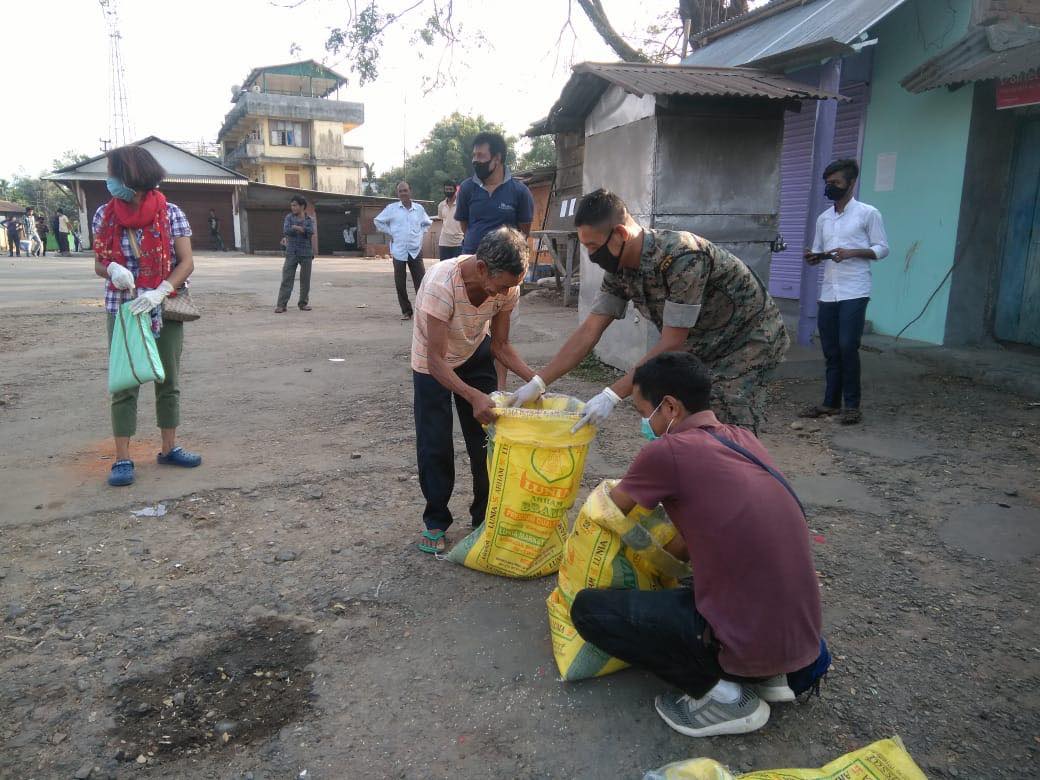
Tackling Problems in The Way
For a district administration with just three labour inspectors, it has taken time to enforce all the initiatives, like the process of registrations. If there are more than five migrant labourers from any other state, they have to be registered with the local district administration.
Some of these labourers had registered themselves, but the administration found that there are many who haven’t. As of now, there are 247 migrant labourers in East Garo Hills, and most of their needs have been taken care of by the contractors.
They are being looked after under the State Disaster Relief Fund (SDRF) and their contractors since they have come into the district for a particular job. The administration is looking out for those who aren’t in relief camps.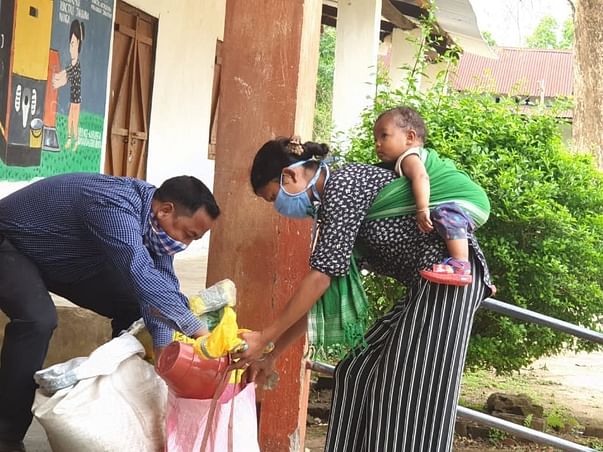
“That is where the District Relief Fund is useful, catering to those not covered under any scheme. I am not asking for any kind of documents from them. If we find anyone hungry, we are providing them with food. The entire distribution of essentials to the families of these daily wagers and migrant labourers have been given to the SHG. From my officers in the field, we receive a list of people stranded and without food. We pass on the list to the SHG. Alongside other district officers, the food is distributed. We are constantly monitoring the process in coordination with officials like the local village headman,” informs Tembe.
Most daily wage earners and their families are from neighbouring districts who aren’t taken care of by contractors/work providers. They have not come to a definitive worksite for employment. They are freelancers looking for work during the day, and they survive on whatever they earn. “Our target is to help these people because neither do they have proper work, nor the resources to survive a lockdown,” he adds. So far, the administration has managed to feed them, and hope to continue with it for an additional 19 days.
Other Relief Measures
Meanwhile for other residents in the district, the administration is in touch with organisations like SELCO Foundation and figuring out ways of how locals can earn a living sitting at home.
The State government has come up with an initiative of encouraging face mask production by SHGs. Women, who have been trained in stitching and sewing are making these masks enmasse. After procuring these masks, the government is distributing them free of cost to the general public. Women working in these SHGs, meanwhile, are earning some income.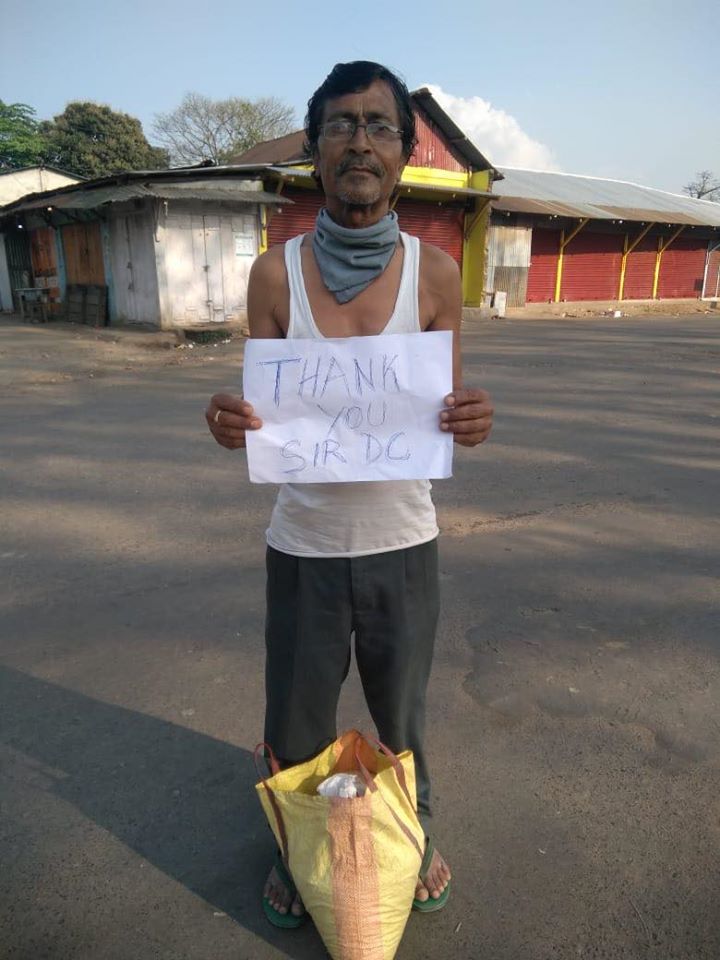
“We have also engaged unemployed youth in conducting home deliveries of essentials because we don’t want people to come out of their houses and buy groceries. Since Williamnagar, the district headquarters, isn’t a very big town, we are managing with 25-30 unemployed youngsters to deliver essentials. They charge Rs 20-30 per delivery. They are helping people since they can’t necessarily step out into the main market. We want to avoid any gathering of crowds, plus these boys are earning a living and offering a public service. We are also looking at a few food delivery services since restaurants cannot function and asked young entrepreneurs in the city to develop a tiffin delivery service,” says Tembe.
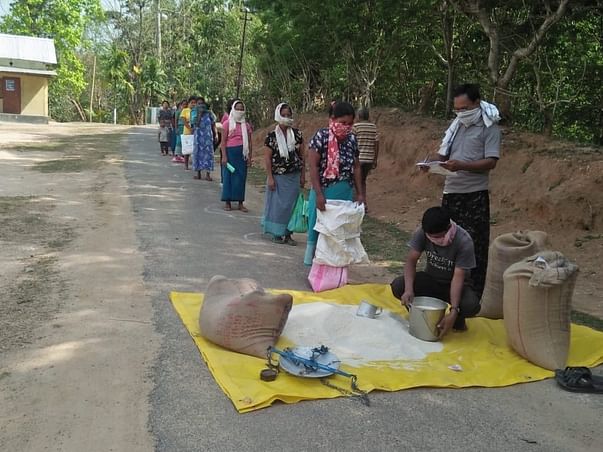
Lockdowns are very difficult for rural and remote districts like East Garo Hills. It’s not like the major cities where people have enough in their houses to survive for weeks. Here, more than the virus, other issues are prominent like the lack of essential commodities and money.
The district depends on Assam for essentials. During times of lockdown, where there are blockades and excessive checking along state borders, consignments get stuck. Initially, there was a problem with the supply of rice, but that’s been addressed. However, supply of vegetables has become a problem because of their total dependence on Assam. To address it, the administration is sourcing vegetables locally from their farmers.
The Better India’s “BETTER TOGETHER” initiative has brought together civil service officers from across the country as they help migrant labourers, daily wage earners, frontline workers, and all those who need our help most in these troubled times. You can join us and support them in this fight against COVID-19.
Unable to view the above button? Click here
(Edited by Saiqua Sultan)
Like this story? Or have something to share? Write to us: [email protected], or connect with us on Facebook and Twitter.
This story made me
- 97
- 121
- 89
- 167
Tell Us More
We bring stories straight from the heart of India, to inspire millions and create a wave of impact. Our positive movement is growing bigger everyday, and we would love for you to join it.
Please contribute whatever you can, every little penny helps our team in bringing you more stories that support dreams and spread hope.



















